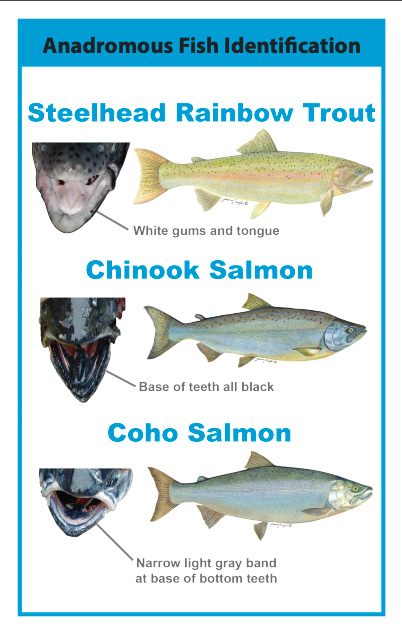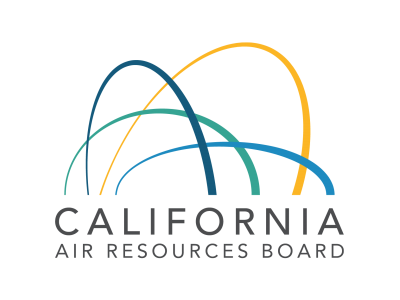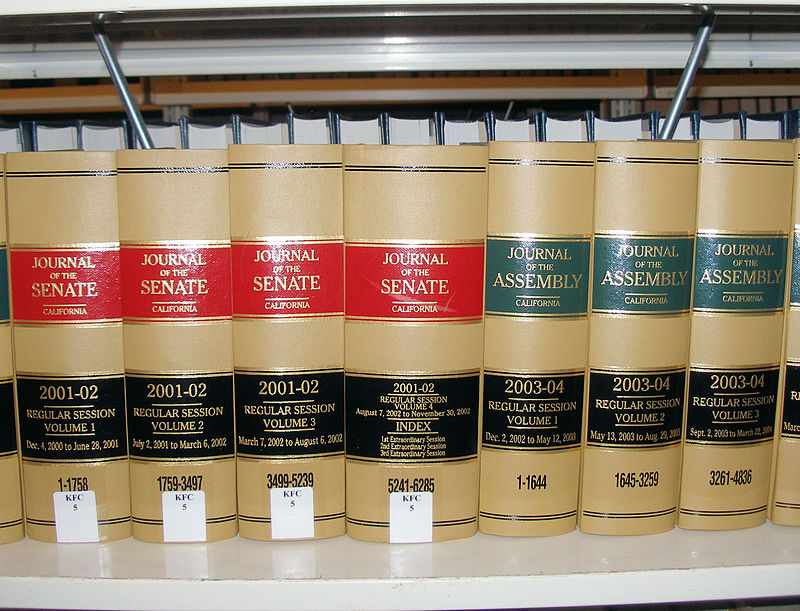
CA Sport Fishing Regulations. (Photo: nrm.dfg.ca.gov)
New Report Finds CARB Failed To Consider Economic Impact in Proposed Boating Regulations
A one-day fishing trip would go from the average price of $180 to $542 under new CARB rules according to the report
By Evan Symon, November 16, 2021 2:39 am
According to a new Southwick & Associates economic impact released Monday by the Sportfishing Association of California (SAC), the California Air Resources Board (CARB) failed to obtain data when assessing the economic effects of new proposed harbor craft emissions standards.
Due to pressure from Governor Gavin Newsom’s office and other state organizations to crack down on emissions in the same spirit as the new gas-powered car ban by 2035 law signed last year and the ban on new small engine gas powered machines by 2024 law passed earlier this year, the California Air Resources Board decided to go after emissions coming from boats. In the new Proposed Amendments to the Commercial Harbor Craft Regulation language, the state would require all boat engines to be modified with technology to cut back on emissions. However, CARB found that the needed modifications either don’t exist yet, and even if built or would be too big to safely fit on most boats, necessitating the building or purchasing of new boats that are or can be compliant.
Earlier this month, multiple business, fishing, outdoor retailer, and boat organizations outlined in a letter how the new regulations would have disastrous economic, social, and leisure repercussions around the state, from significantly raising the prices of marine-based tourist ventures to severely hurting local tax bases. Now, with the close of public comment and a CARB vote expected on Friday, final reports are being released showing a more clear look at what the economic consequences will be.
The economic impact put out on Monday shows that boat-based businesses, such as sport fishing and whale-watching companies, found that new boats fitting within the new environmental regulations would not be $2.1 million as CARB’s estimate said, but would rather be $4.6 million for a 65-foot vessel and $5.7 million for an 80-foot vessel. Price increases for one-day trips would also go up between 100% and 200%, rather than the estimated 19% to 27% as estimated by CARB. One example given by the report showed that a one-day fishing trip would go from the average price of $180 to $542 under new CARB rules.
The report also pointed out that down payments on boats cost between 20% and 40%, with new regulations meaning that older vessels would see no resale value in California, with buyers likely coming from only outside the state or country. As banks would demand higher down payments due to the old boat no longer being a quick asset to turn around, many vessel operators would likely close down as a result. CARB had not considered this point in their new regulations.
Higher prices likely with new regulations
Higher ticket prices would also mean fewer people travelling to coastal communities that rely on tourism for a significant part of their economy, with fewer fishing licenses meaning less money for state fishery and conservation programs.
“CARB failed to obtain actual data to properly assess the crushing impact of their proposed regulations,” said San Diego sportfishing company owner Frank Ursitti in a statement on Monday. “Nowhere in the country has a state proposed regulations that will have the practical effect of destroying offshore fishing and whale watching businesses, and threatening the coastal communities that depend on them for tourism and visitor spending. This uniquely California experience will come to an end if CARB’s plan is not rejected.
“It became evident early on that CARB does not understand marine operations and fishing practices, and they were low-balling regulatory costs and inflating benefits. The true cost for new vessels is staggering and would require us to triple ticket prices for day trips. No customer is going to pay that to fish or observe marine life and it would end our non-profit programs for at-risk youth and veterans.”
Others noted that, in protecting one aspect of the environment, other parts would be hurt as a result.
“They’re robbing Peter to pay Paul here,” explained Jan Loomis, a marina owner in Northern California. “Fishing licenses go to conservation programs. People who go out to watch the whales put a ton back into conservation, with many companies giving back too. It’s a good intention to want better boats that don’t pollute as much or contribute to climate change. But the way that they are doing it hurts the environment just as much. The change needs to be more gradual, with grandfathering in boats and giving better avenues to resell older boats outside the state. CARB just wants change now and it seems like they don’t really care who they hurt in the process. If we did a psychological test on them, they’d probably be labeled a sociopath.”
In conclusion, Rob Southwick, the sportfishing and outdoor recreation market expert concluded that “Any assumption that costs can be fully or even partially passed along to customers without decreasing participation is simply wrong. If boat operators were in a position to charge higher prices, just like any business, they already would have. Without a doubt, price increases will harm CPF vessel operators and likewise the local communities that depend on them.”
While the CARB panel has not responded to the new study, CARB has maintained in the past that the new regulations are needed to reduce emissions to help meet California emissions goals in the coming decades.
The CARB vote on the new regulations is expected this Friday.







A perfectly conspired plan.
Can’t comply?
Ocean sport fishing unaffordable, therefore eliminated. Environmentalists;Thrilled!
Small businessmen out of business. Government; thrilled! “Here’s your welfare check. Go home and we’ll take care of your needs(as We see fit for you.)
And don’t try to set up a small business as an independent contractor. The state outlawed much of that.
CARB always lowballs the economics to sell their agenda but what would expect of a bunch of commies who FAKE their studies?
And this is ALL FOR NOTHING anyway. CA ranks 41st in pollution/emissions out of all states in the U.S.
So in addition to dooming sportfishing, whale watching, and Catalina-visiting small business enterprises, both for the businesses AS WELL AS for those who enjoy them, CARB’s interference once again doesn’t do a darn bit of good. Only harm. As usual.
This would wipe out the sport fishing industry in the state salt and fresh water .Billions in sales and revenue. And the lives of those who have a life savings invested in their Vessels . We need to find a way to convert all applicable Vessels. To save the environment and the fishing industry in the entire nation, But we can set an example to fallow. Thank you.
I think that’s their INTENT, Brian… they want to decimate all independent business and implement the Agenda 2030 “you’ll own nothing and be happy” philosophy…
We are facing the fight of our lives here, people… these NWO types are fighting a war on multiple fronts, including egregious laws like this one, decriminalizing big cities via DA’s like Gascon & Boudin , draining the reservoirs to decimate the farming/agricultural industry (most of whom probably vote conservative) and generall making life in California unpleasant, expensive and centrally managed….
Connect the dots, starting with the insane vaxx mandates and the giant psy-op that accompanies it and this makes sense…
https://www.globalresearch.ca/coronavirus-causes-effects-real-danger-agenda-id2020/5706153
Gavin Newsom is painting a bullseye the size of Texas on himself. Can’t wait for someone to fill their tag!
If boats are too polluting for California, the cargo ships should use ports in other states, too. Nevermind the economic consequences.